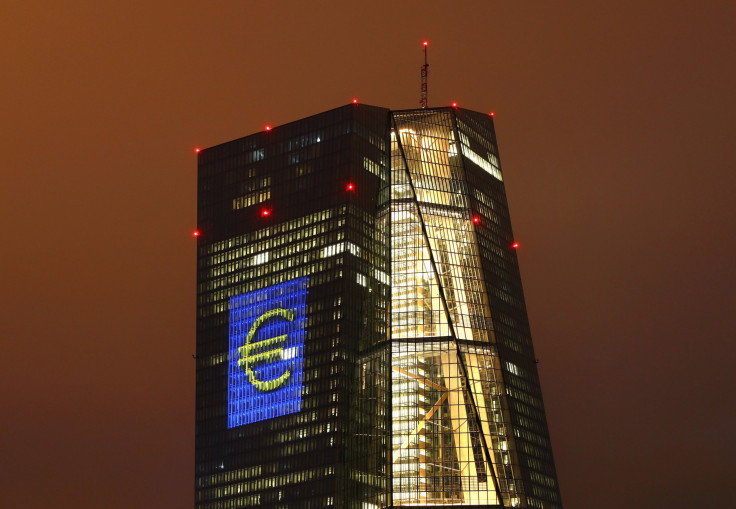European Central Bank Chief Mario Draghi Expected To Fend Off German Criticism During Thursday Meeting

The European Central Bank is unlikely to unveil fresh stimulus when its governing council meets Thursday. Instead, ECB officials, including President Mario Draghi, are likely to focus on defending the central bank’s dovish policy that has recently come under severe criticism in Germany.
“We’re clearly getting to the point where each additional dose of easing is not bringing much in term of economic outcome,” Andrew Bosomworth, head of Pimco’s German portfolio management team, told the Wall Street Journal. “Worries are starting to creep in.”
Last month, in an attempt to prevent a deflationary slump in the 19-nation eurozone — where inflation has stubbornly remained in the negative territory — the ECB slashed its interest rates to record lows. Additionally, it also ramped up its quantitative easing program to 80 billion euros ($91 billion) per month from 20 billion euros, and announced that it would also start purchasing some corporate bonds.
However, the ECB’s latest round of stimulus has caused widespread resentment in Germany, where low interest rates have hurt savers, life insurers and smaller German banks that rely on interest incomes.
“I am not happy about low interest rates. I would prefer higher interest rates,” German Finance Minister Wolfgang Schäuble, Chancellor Angela Merkel’s closest political ally, said earlier this month. “There is a growing understanding that excessive liquidity has become more a cause than a solution to the problem.”
Investors would tune in to the ECB’s press conference Thursday to see if the central bank answers its German critics.
Draghi is also expected to clarify his position on the so-called “helicopter money” — an extreme form of stimulus wherein central banks distribute money directly to the public. While the ECB chief recently called it “a very interesting concept,” other ECB officials have expressed their dissent, stating that such a measure was “not on the table.”
“It’s going to be very frustrating [for Draghi] if just a few weeks after a second package of policy measures was announced, there’s a clamor to discuss a helicopter drop,” Ken Wattret, an economist with BNP Paribas in London, told the Journal.
© Copyright IBTimes 2025. All rights reserved.






















